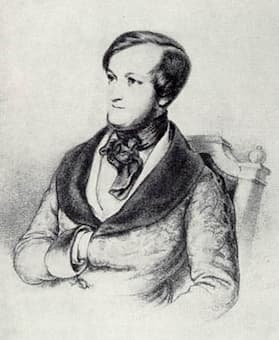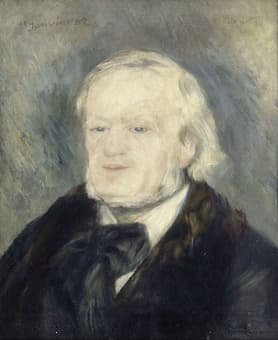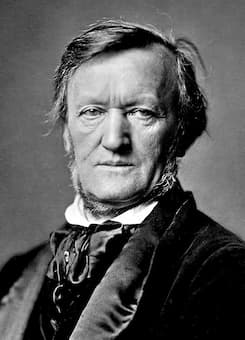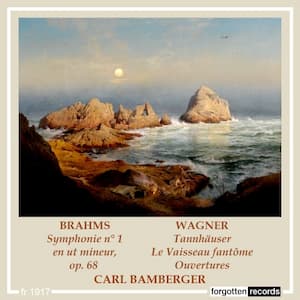Cosima Wagner, daughter of a great musician and wife of another, was instrumental in helping to found Bayreuth, the festival featuring her husband’s operas, “and ensuring its survival as an annual event of worldwide fame.” Every year, large audiences gather
Wagner
Richard Wagner’s Die Meistersinger von Nürnberg premiered, generously supported by Ludwig II of Bavaria, at the Munich Court Opera on 21 June 1868. Hans von Bülow conducted, and Franz Strauss, the father of Richard Strauss played the French horn at
I absolutely love the way Richard Wagner is introduced in the most-respected English-language dictionary. The author writes, “It is both fitting and psychologically congruous that a question mark should hover over the identity of the father and mother of the
Pierre August Renoir (1841-1919), who loved music, was a great admirer of Richard Wagner (1813-1883). As one of the first Wagnerites in France, Renoir jumped at the opportunity to meet his hero when he was in Italy in 1882. Two
We do know that Richard Wagner died on 13 February 1883 after suffering his final, fatal heart attack. However, there is still much debate as to what triggered that fatal attack. The leading English-language dictionary asserts, “the attack followed an
We associate Richard Wagner with the four great operas of his Ring Cycle, but we should also look at his earlier works to see where his musical sources were. One interesting work is the Faust Overture he wrote while in
The sea was Richard Wagner’s inspiration for his 1843 opera Der fliegende Hollander (The Flying Dutchman). In July to August 1839, Wagner travelled from Riga to London, crossing the Baltic Sea and the North Sea on what proved to be
In 1870, Richard Wagner (1813-1883) married his second wife, Cosima Liszt. His first wife, Minna, had died in 1866 but he’d had a relationship with Cosima, the illegitimate daughter of Franz Liszt and Marie d’Agoult, since 1863 when she was








